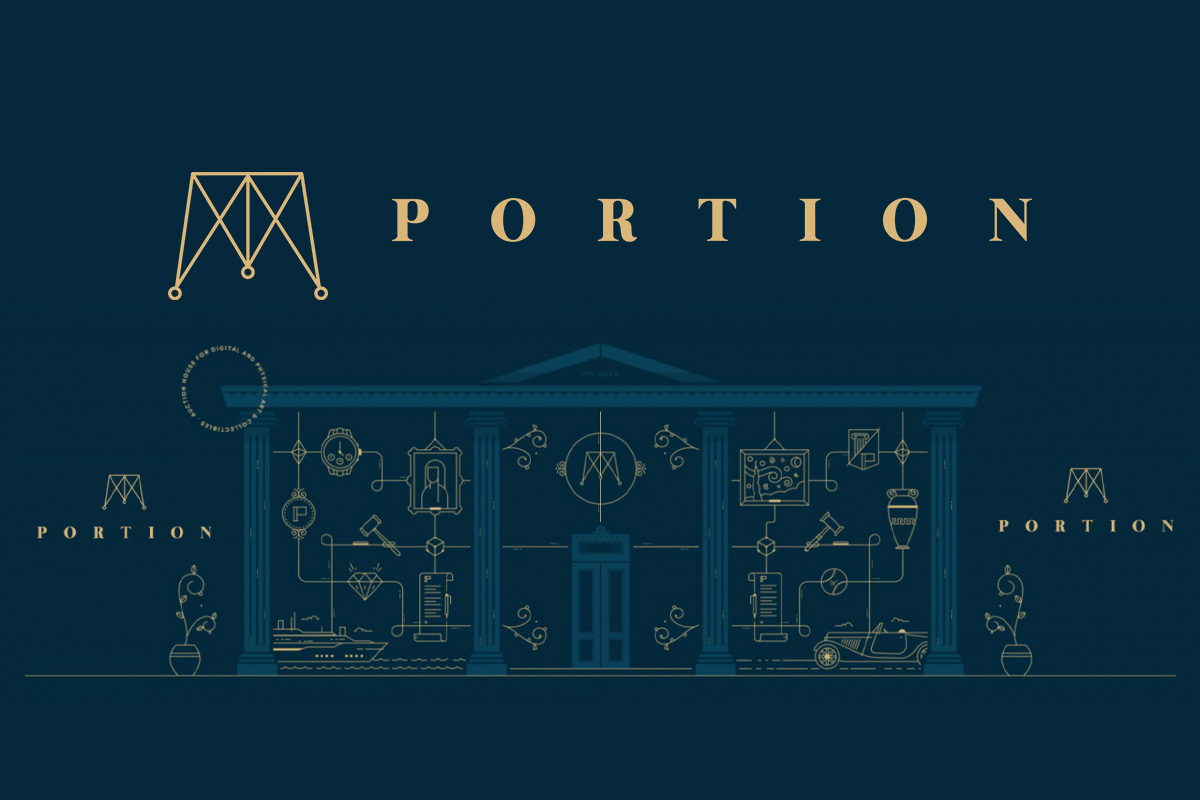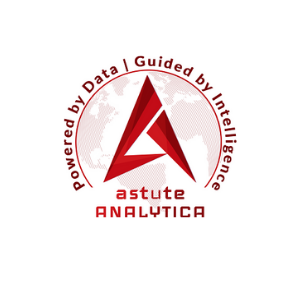Blockchain
Portion secures Decentraland district to build experiences for artists and brands

Portion.io, a 21st-century blockchain-based auction house and collector’s community for rare high-end physical and digital art items, announces the purchase of ”Portion District”, an estate within Decentraland, a 3D virtual world platform where users buy virtual plots of land as NFTs. The purchase was completed for 425,000 MANA, equivalent to approximately 1,200,000 USD, as of 01/27/21.
Just like Manhattan’s Fifth Avenue, high-traffic areas serve as a premium thoroughfare for world-famous luxury brands, and the coming Metaverse is building its own such districts. Built on the Ethereum blockchain, Decentraland is one of the Metaverse’s early movers and has proved itself a popular arena for this, where plots of lands are bought, sold, and used to create an entirely virtual decentralized district. But for artists and brands looking to enter the fledgling space, the focus is on exploring what’s possible in terms of technical and visual capabilities. As digital experiences move from two dimensions to three, building real-world brand experiences will thus prove a pivotal juncture.
To help brands and artists explore their potential in the space, Portion has acquired ”Portion District,” a large estate near Genesis Plaza in Decentraland. The acquisition comes on the heels of its recent successful partnership with digital consultancy Publicis Sapient. As a leader in digital business transformation, Publicis Sapient partners with the world’s largest brands, most of which are exploring and investing in Web 3.0. Portion’s district acquisition helps empower connected brands and companies to evolve and appeal to a new generation of consumers, by properly refining the user experience before launch, including how transactions are processed, products are tested, and digital interactions are recorded.
The acquisition is part of a wider decentralized mission by Portion to connect artists and collectors through blockchain technology in order to easily sell, invest, and own art and collectibles with complete transparency. The company’s NFT auction platform is built on the Ethereum blockchain and its NFT marketplace lists high-end crypto artworks and collectibles from various artists. Portion’s platform offers a high degree of transparency while facilitating the exchange of high-value and authentic digital artworks. To optimize engagements, Portion utilizes its native token $PRT to align incentives between artists, creators, and a new wave of collectors.
“We’re incredibly excited to acquire a premium district in the Decentraland ecosystem in the early stages of its development,” says Jason Rosenstein, CEO & Founder of Portion. “It’s a major step in our journey since it helps us begin tangibly building out on a vision we’ve been developing for quite some time, allowing us to effectively optimize proof of concepts for the growing pool of curious artists and brands merging themselves into the Metaverse.”
“Today’s transaction represents a significant financial commitment to trading in the metaverse and shows the huge commercial potential of Web 3.0,” says AJ Dalal, Publicis Sapient’s GVP, Data Strategy & Consulting. “Our partnership with Portion is demonstrating how brands can offer the next generation of compelling and engaging digital experiences and products. Combined, our partnership is accelerating our growth into new digital spaces and many more companies will leverage business opportunities in the metaverse in the coming months.”
Blockchain
Simplify Labs Expands Educational Outreach with Monthly Crypto Webinars
Blockchain
Blocks & Headlines: Today in Blockchain – May 21, 2025

In an era defined by rapid innovation and regulatory shifts, today’s blockchain briefing spotlights five pivotal developments: enterprise-grade data integration, municipal crypto pilots, state-level policy hearings, AI-powered token growth, and secure communications on a public ledger. Across these stories, three key trends emerge:
-
Enterprise Adoption & Data Integration
-
Government Experimentation & Oversight
-
AI & Security Innovations in Crypto
Below, we dissect each story’s essence, unpack its broader implications, and offer opinion-driven insight for Web3 stakeholders.
1. Space and Time Joins Forces with Microsoft Fabric
Source: Chainwire / The Defiant
On May 20, 2025, Space and Time Labs (SXT)—a zero-knowledge data platform backed by Microsoft’s M12 Ventures—announced integration of its multichain index (Bitcoin, Sui, Ethereum) into Microsoft Fabric’s OneLake environment. This partnership delivers real-time, verifiable blockchain data directly within Azure, enabling developers and enterprises to build data-driven Web3 and AI applications without custom pipelines.
Opinion: Embedding verifiable on-chain data into mainstream analytics tools marks a watershed moment. As traditional enterprises crave decentralized insights, Fabric’s native access to SXT’s ZK-proven data could accelerate blockchain analytics, foster hybrid cloud-Web3 solutions, and reduce vendor lock-in. Expect more legacy tech giants to pursue similar alliances.
2. New York City Eyes Crypto for Taxes & Records
Source: DL News
Mayor Eric Adams revealed plans to form a Digital Assets Advisory Council to explore crypto-based payments for municipal services, including taxes, birth/death certificates, and land records. While specifics remain under wraps, Adams highlighted zero-knowledge proofs as a privacy-preserving tool for public documentation on distributed ledgers.
Opinion: New York’s initiative signals growing municipal appetite for blockchain beyond investments. By potentially accepting tax payments in crypto and securing vital records on-chain, NYC could pioneer use cases that blend transparency with privacy. However, pilot programs must rigorously address volatility, regulatory compliance, and digital inclusion to avoid disenfranchising underserved communities.
3. Wyoming Committee Explores Blockchain, AI & Right-to-Repair
Source: Wyoming Public Media
During its first interim meeting (May 14–15, Jackson Hole), Wyoming’s Select Committee on Blockchain, Financial Technology and Digital Innovation reviewed the state’s proposed Wyoming Stable Token—tethered 1:1 to USD—and examined AI governance and right-to-repair legislation. The Stable Token Commission anticipates a July 4 alpha launch, while lawmakers debated CBDC distinctions, tokenized real-world assets, and consumer repair rights.
Opinion: Wyoming continues to cement its reputation as a blockchain haven. Explicit carve-outs distinguishing stablecoins from CBDCs, coupled with regulatory sandboxes for AI and repair laws, underscore a holistic approach to innovation. Other states should monitor Wyoming’s alpha testing outcomes to inform balanced policy frameworks that nurture Web3 while safeguarding consumer interests.
4. AI Tokens Surge in Crypto’s New Tango
Source: The Economic Times
Himanshi Lohchab reports that AI-centric utility tokens—built to autonomously execute services like compute renting (Render), predictive analytics (SingularityNET), and data marketplaces (Ocean Protocol)—have seen market caps soar from $2.7 billion to nearly $30 billion within a year. Key players include Near Protocol’s AI modules, ICP, The Graph, and emerging AI agents that generate revenue per usage. Institutional interest from Grayscale, BlackRock, and Fidelity further validates the trend.
Opinion: The AI-blockchain convergence is no fleeting fad. AI tokens promise programmable revenue streams and decentralized toolchains, but they also introduce autonomous risk vectors—buggy smart contracts, accountability gaps, and regulatory ambiguity. Security audits, standardized interoperability protocols, and clear legal frameworks will be crucial to sustain investor confidence.
5. BSV Association Selects Binarii Labs for Secure Communications
Source: CoinGeek (via PRNewswire)
The BSV Association has designated Binarii Labs to implement BinariiDSM, an encrypted file exchange and messaging suite that logs proofs of record on the BSV blockchain. This integration ensures immutable audit trails, data resilience, and end-to-end confidentiality for enterprises seeking verifiable trust without centralized intermediaries.
Opinion: As data privacy regulations tighten globally, blockchain-anchored communication platforms like BinariiDSM offer a compelling alternative to legacy VPNs and secure email. By immutably recording metadata on-chain, organizations can demonstrate compliance, simplify audits, and deter insider threats. Look for BSV’s secure-messaging model to inspire similar offerings on other smart-contract platforms.
Conclusion: Navigating a Dynamic Blockchain Frontier
Today’s stories reaffirm that blockchain is no longer an experimental niche—it’s permeating analytics, public services, legislative agendas, tokenomics, and secure communications. To thrive:
-
Forge Strategic Alliances: Enterprises should partner with ZK and data-fabric innovators to embed blockchain insights into their analytics stacks.
-
Pilot Pragmatically: Municipalities must balance visionary crypto use cases with compliance, volatility management, and equitable access.
-
Craft Balanced Policy: States can emulate Wyoming’s sandbox approach—distinguishing stablecoins from CBDCs, while addressing AI and repair rights.
-
Secure the Autonomous Agent Era: As AI tokens multiply, enforce rigorous security audits and interoperability standards.
-
Leverage On-Chain Trust: Consider blockchain-anchored communications for immutable audit trails and enhanced data resilience.
By embracing these actions, organizations and policymakers can harness blockchain’s transformative power while mitigating emerging risks.
The post Blocks & Headlines: Today in Blockchain – May 21, 2025 appeared first on News, Events, Advertising Options.
Blockchain
Hair Transplant Market To Worth Over US$ 41.01 Billion By 2033 | Astute Analytica
-

 Blockchain7 days ago
Blockchain7 days agoBDM Digital Initiates Promising Dialogue with Stanford Law School in Pursuit of Strategic Partnerships in Silicon Valley
-

 Blockchain7 days ago
Blockchain7 days agoBlocks & Headlines: Today in Blockchain – May 15, 2025 (BTC’s Push, Pi Network Fund, Stablecoin Levers, JPM Pilot, OKX × Man City)
-
Blockchain7 days ago
Wen Acquisition Corp Announces the Pricing of $261,000,000 Initial Public Offering
-
Blockchain6 days ago
Mercurity Fintech’s Subsidiary Grows Cross-Border Business Advisory Services with New Asia-Pacific Healthcare Client Engagement
-

 Blockchain6 days ago
Blockchain6 days agoSaudi Arabia Loan Aggregator Market Report 2025: Retail Digital Payments Hit 70% as Tech Adoption Transforms Saudi Financial Services – Competition, Forecast & Opportunities to 2030
-

 Blockchain6 days ago
Blockchain6 days agoBlocks & Headlines: Today in Blockchain – May 16, 2025
-

 Blockchain Press Releases3 days ago
Blockchain Press Releases3 days agoCoinW Unveils Industry-First Futures Protection Program:Instant Refunds Designed to Safeguard Traders
-

 Blockchain3 days ago
Blockchain3 days agoBlocks & Headlines: Today in Blockchain – May 19, 2025 | DoubleZero, Toobit, Story Protocol, Marco Polo, Argo Blockchain



































